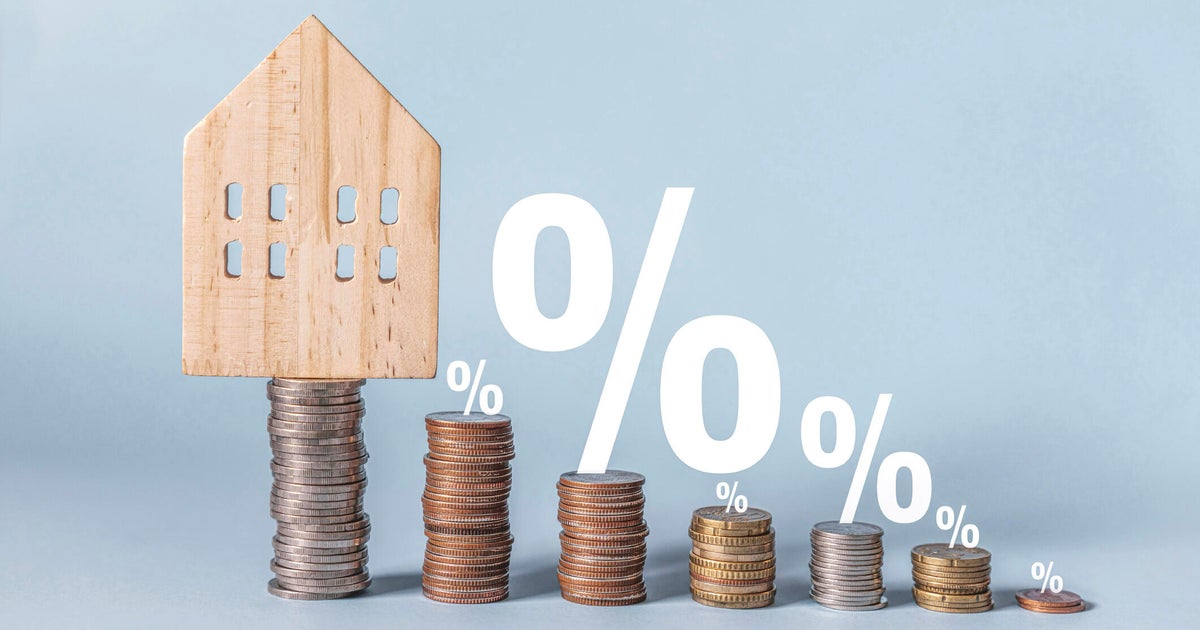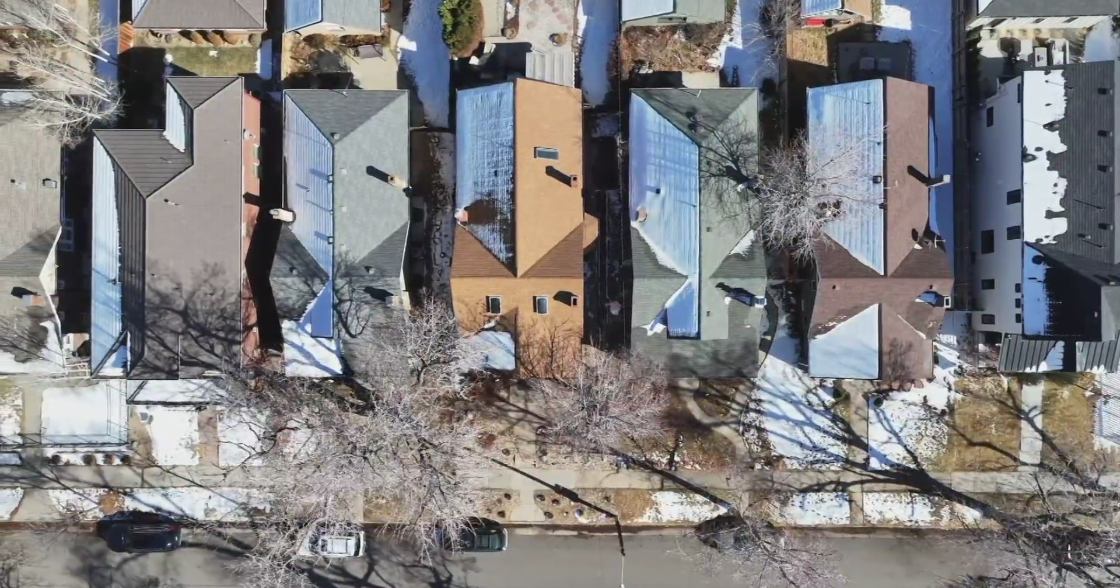Should you refinance your mortgage in 2024?
Taking out a mortgage is a big financial decision, but it doesn't have to be a permanent one, at least not in terms of the rate you pay. In many cases, homeowners can refinance their mortgages, which involves taking out a new loan to replace the old loan. Doing so can potentially lower your monthly payment if interest rates drop, or you might take advantage of other possibilities with refinancing, like changing the duration of your mortgage or removing mortgage insurance.
However, refinancing often comes with upfront fees known as closing costs, which include expenses for items like appraisals and underwriting. Sometimes closing costs can be rolled into the loan, but it's still important to account for these fees to decide whether to refinance or not. Average closing costs for a mortgage refinance loan are $5,000, according to Freddie Mac, but the specifics can differ based on factors such as your location and home value.
Interest rates have generally been on the rise in 2023, with the average 30-year fixed-rate mortgage at 7.76%, according to Freddie Mac. Now, many homeowners are wondering whether next year will bring some relief in the form of lower interest rates .
"How far they drop and exactly when remains a topic for discussion, but most analysts are predicting we'll be somewhere in the mid-to-low six percent range by the end of next year," says Dan Richards, EVP, mortgage & title, Flyhomes.
Jeremy Schachter, mortgage loan officer at Fairway Independent Mortgage Corporation, agrees that the interest rate environment will improve as the Federal Reserve's efforts continue to take effect.
"As we go into the new year, inflation will come down even further," he predicts. That, combined with a potential recession and higher unemployment "will drive rates lower."
If you're considering a refinance then it helps to do your research. See what refinance rates you could qualify for here now.
Should you refinance your mortgage in 2024?
If mortgage interest rates decline, that could create some opportunities for homeowners to refinance.
"In the case where they do drop, a cash-out refinance to consolidate high interest debt, or a rate and term refinance to remove mortgage insurance are both examples where it likely makes sense for people to refi," says Richards.
Schachter agrees that 2024 could present more opportunities to refinance, assuming interest rates fall due to cooling inflation and an economic contraction. Even if interest rates only drop a bit in 2024, that could still make refinancing worthwhile.
"There is an old adage that unless you reduce your interest rate by 2%, it wouldn't be worth it to refinance. I completely disagree with this statement because so many factors go into what makes sense to refinance," he says.
For example, says Schachter, if you took out an FHA loan in 2023, that requires you to have mortgage insurance for the life of the loan. But refinancing into a conventional loan in 2024 could enable you to drop that insurance. Even if you had a small down payment, rising home values might then enable you to gain equity and refinance to a conventional loan without mortgage insurance, thereby reducing your monthly payment.
Another reason to refinance could be to change terms, such as switching from a 30-year loan to a 15-year one to pay off your mortgage sooner, says Schachter. Although this can raise your monthly payment, shorter mortgage terms generally have lower interest rates, so you can save money over the life of the loan.
However, not everyone agrees that 2024 will be a good time to refinance, considering that many homeowners were able to lock in lower rates before they started to soar.
"I don't think 2024 will be a good time to refinance for many people, if for anyone," says Jeff Levinsohn CEO at House Numbers. "Only about 5% of homeowners have an interest rate above 6.5%. Plus, the industry is forecasting a drop in interest rates in 2024 to the high 6% range. That's not going to cut it. It would take a major deterioration in the economy and a historically fast decrease in interest rates to create a refinance opportunity for most homeowners."
That said, if you do have a high interest rate, such as if you recently bought a home, that could provide an incentive to refinance in 2024, including for those who took out home equity loans.
"A good rule of thumb is to consider a refinance when your interest rate is 0.5% or more above the current average rates," says Levinsohn. "With a HELOC, the interest rate normally lowers automatically as it adjusts each month. But, with a home equity loan, don't forget those can be refinanced, too, and the same '0.5% rule' applies."
Learn more about your home equity loan options here now.
Other mortgage refinancing factors to know
While refinancing can potentially save you money, it's important to do the math to see if you come out ahead after closing costs.
"Shop the market to check what interest rate you qualify for, what are the monthly savings, and how many months it would take to offset the costs of the refinance. For example, if you'll save $250/month and the costs of the loan are $5,000, you'll need to stay in the home at least 20 months for the refinance to be worthwhile," says Levinsohn.
There's also a risk that interest rates will drop further after you refinance. While you can refinance multiple times, that can add even more closing costs and complexity.
"The biggest risk is that rates continue to fall through 2025 and you refinance at a higher percentage than you needed to. Even if this happens though, the homeowner that refinances at 6.2% is still better off than continuing to carry their 7.6% rate," says Richards. "If rates do continue to fall through 2025, getting as low as 5.0%, that same homeowner can refinance again as long as the math for their personal situation allows them to recoup their closing costs in a reasonable amount of time."
Still, he says, every situation is different, so you shouldn't base your decision to refinance based solely on rules of thumb. "Homeowners need to account for their individual situation, like the size of their loan, how much is left on their mortgage, and their local state and county costs," adds Richards.
Lastly, keep in mind that cash-out refinancing, where you take out a loan larger than your mortgage by tapping into your home equity, such as to then use the cash to cover other high-interest debt, can also carry risks. While that might help you save money in the short term, you're responsible for more housing debt and you could be putting yourself at risk if home prices fall.
"If your home value does go down and you take out equity, you may be in a tighter position to refinance down the line or sell your home with limited equity," says Schachter.
That said, "there is no indication at all we are in a housing bubble or crash. The supply versus demand is still too high. But that doesn't mean home values won't come down," he adds.
Overall, refinancing could be a viable option for some homeowners in 2024, but the reality is that many existing homeowners have lower-than-average rates already. And if you're buying a home now with the expectation that you can refinance next year, that can be risky, as rates don't always follow predictions. Still, some homeowners may find that if rates fall as predicted in 2024, then they can save money and improve their mortgage situation by refinancing.
Explore your mortgage refinancing options here now to see if it makes sense for you.




